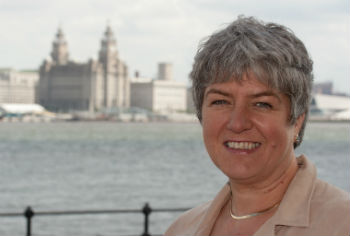
Liverpool has a new crime commissioner, have you heard? What’s what? You don’t know what I’m talking about? Well, join the club.
Former Liverpool MP Jane Kennedy will take up the £85,000 a year post to, well, to do whatever it is that police and crime commissioners do. No-one seems especially sure.
Kennedy won with around 56 per cent of first preference votes on a turnout of 12.7% - seven per cent of the vote. In what sense can that conceivably be called a mandate? If I were Kennedy I’d resign, if it weren’t for the 85 grand and, possibly, the ability to pay her partner out of her expenses again.
Out of 130,000 votes cast around 3,000 were spoiled - the only way voters could register their dismissal of the notion of an elected commissioner. That’s a lot.
Certainly it’s not clear that there is any sort of demand for elected police commissioners - especially when candidates stand with the backing of a political party, essentially politicising managerial roles. What next? Elected NHS Trusts? Sanitation Department Managers? A Labour-approved candidate for leaf-sweeping duties in Sefton Park (tough on leaves, tough on the causes of leaves)?
In a city where partisan dealignment never really happened to any meaningful extent, it was always a sure thing that Jane Kennedy would be elected; just as it was a no-brainer that Joe Anderson would be elected as Mayor. Can that possibly be a good thing?

Like in the Mayoral election, we have a national government that has utterly failed to communicate the need for a whole new layer of bureaucracy that the public will be directly responsible for electing.
Candidates weren’t able to write to the electorate as central government wouldn’t fund it. That meant that those with access to more ready cash could reach more people. No-one knew about the election - and if they did, they didn’t care. Further, if they voted they were more likely to spoil their ballots than in any other recent local election of note - bar the similarly-ignored Mayoral election.
Kennedy went so far as to warn that not voting would “leave the door open for extremists to take control of our police forces”. That warning may come back to haunt her. While no true-blue extremists contested the election, despite Paul Rimmer’s odd claim that God would guide him in the job (obviously not in the campaign, though) and some unpleasant views, the statement drew light to the fact that gave two hoots about this silly election.
As the new commissioner, Kennedy will have the power to appoint and dismiss chief constables, agree budgets and set local policing priorities. At a time when police forces across the country are being scrutinised more than ever before - especially here on Merseyside - the imperative to take an interest in who runs police forces should be clear.
Yet the combination of a process botched by central government, a vague job description, local party politics as usual and the thorough disengagement of the electorate from democratic process means that Jane Kennedy now essentially runs Merseyside Police because even per cent of the electorate chose her.
That’s an absolute shambles. But it’s a result I’m personally grateful for. With any luck it’s weak enough to condemn the whole experiment to quiet dissolution under a future Labour government (who actually opposed elected police and crime commissioners).
Certainly our public services and forces need to engage with the public - and we need to make elected officials of all stripes more accountable. But electing people on tiny turnouts from the usual selection of time-servers and professional politicians isn’t the answer; it’s part of the problem.
Robin Brown is co-editor of SevenStreets.
-
david

Eavesdropping on Art
Victorian paintings were the Hollyoaks of their day. So imagine what would happen if, finally, they were allowed to talk to us...© 2010 Sevenstreets.com | All rights reserved


















1